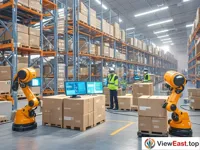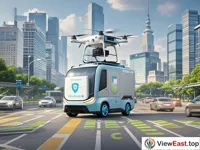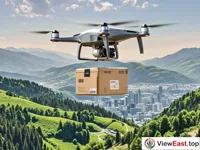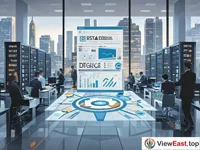







In China, the logistics industry has always been one of the pillars of economic development. With the rise of Artificial Intelligence (AI) technology, the logistics industry in China has ushered in an unprecedented transformation. From automated warehouses to intelligent delivery, from drone delivery to supply chain optimization, the application of AI technology is helping China's logistics operate efficiently.
1. Initial Exploration of AI Technology in the Logistics Industry
At the beginning of the 21st century, the logistics industry in China began to try to introduce AI technology. The initial applications mainly focused on automated warehouse management and optimizing the goods sorting process. By introducing automated equipment and intelligent algorithms, logistics companies could improve sorting efficiency and reduce labor costs.
2. Intelligent Delivery and Drone Delivery
With technological advancements, the application of AI in the logistics industry gradually expanded to the field of delivery. Intelligent delivery systems can plan the best routes based on real-time traffic conditions, improving delivery efficiency. The development of drone delivery technology has provided a new solution for logistics delivery in remote areas.
3. Intelligent Supply Chain Management
The application of AI technology in supply chain management allows logistics companies to predict market demand more accurately and optimize inventory management. By analyzing big data, companies can monitor the supply chain status in real-time, adjust production and delivery plans promptly, and reduce inventory backlog and logistics costs.
4. Revolution in Automated Warehouses
Automated warehouses are another major application of AI technology in the logistics industry. With robotic picking, automated packaging, and intelligent storage systems, automated warehouses greatly increase the speed and accuracy of goods handling. This automation not only improves efficiency but also reduces the possibility of human error.
5. Intelligent Customer Service and Customer Experience
In the field of customer service, the application of AI technology is also becoming more widespread. Intelligent customer service robots can provide 24/7 service, quickly responding to customer inquiries and complaints. Through natural language processing technology, intelligent customer service can understand customer needs and provide more personalized services.
6. Data-Driven Logistics Decision-Making
The core of AI technology lies in data analysis and decision support. Logistics companies, by collecting and analyzing a large amount of logistics data, can predict market trends more accurately and formulate more reasonable logistics strategies. Data-driven decision support systems provide logistics companies with a strong competitive advantage.
7. Green Logistics and Sustainable Development
The application of AI technology in the logistics industry also provides possibilities for green logistics and sustainable development. By optimizing transportation routes and cargo loading, AI technology can reduce energy consumption and carbon emissions. Intelligent scheduling systems can improve vehicle utilization and reduce empty driving rates, further reducing logistics costs.
8. Future Outlook and Challenges
Looking ahead, AI technology will continue to drive innovation and development in China's logistics industry. With the development of new technologies such as 5G and the Internet of Things, AI will play an even greater role in the logistics field. However, issues such as data security and privacy protection have also emerged, requiring joint efforts from the industry and regulatory authorities to establish corresponding standards and regulations.